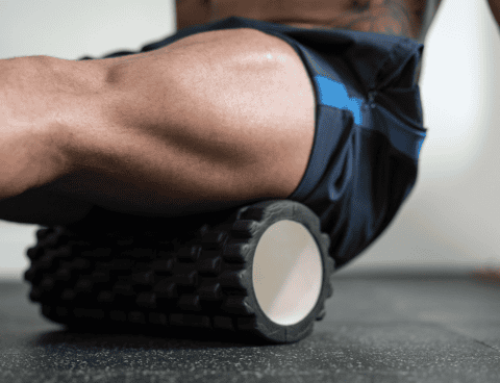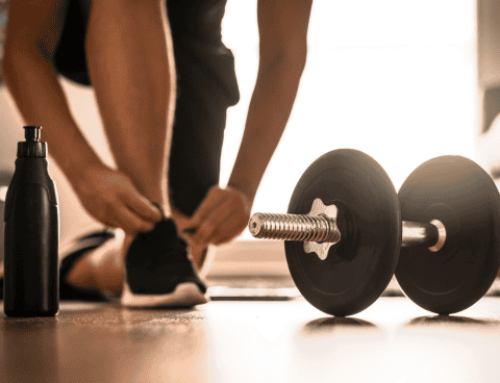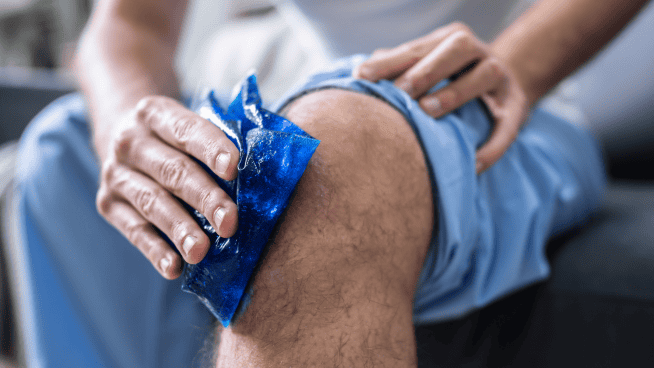How Your Body’s Natural Schedule Affects Your Workouts
Keeping your body in tip-top shape requires planning. You should plan your meals, your workouts and your activity level. But science increasingly shows that you should also take some time to consider your body clock for maximum efficiency.
Your circadian rhythm is your body’s natural 24-hour cycle. Everyone is generally attuned to the daily cycle of the planet in some way or another, and the circadian rhythm is reflected in your body down to its molecular structure. Everything from your body’s production of melatonin to its pumping of testosterone is regulated by this internal clock, and where your body is in its circadian rhythm has a measurable effect on your athletic performance and ability.
RELATED: The Best Workout Schedule, According to Science
What this means for athletes is that they may be unintentionally denying themselves the ability to perform at peak capacity, based on nothing more than when they choose to train. Athletes with a preference for late night or early morning activity in particular may find they’re missing a crucial window of time to work out.
Your body functions best with intervals of activity
A 2009 study found that people who followed a period of regular activity throughout the day and then rested at night tend to perform better and be physically healthier than people who tend to move erratically, including increased activity at night.
Science and studies suggest that regular exercise is a key part of keeping one’s circadian rhythm functioning and on time, and suggest that regular activity throughout the day in some form can be integral to a healthy schedule. As the New York Times put it, “Exercise seems to make the body better able to judge when and how much more it should be moving and when it should be at rest.”
RELATED: Fit Workouts Into Your Busy Schedule With These Tips
Your peak athletic performance comes mid-afternoon
According to Bayesian Body Workout, research has identified that for someone with a standard 9-5 schedule who holds regular sleeping hours at night, the ideal time to begin working out is roughly between 2:30 p.m. and 8 p.m., or throughout the afternoon. This period of time is when your muscles are at the optimal body temperature and you experience, more or less, the greatest amount of cardiovascular efficiency and muscle strength.
Some people may have a slightly different or more erratic schedule; in this case, you should strive to schedule a workout at least six hours after waking up in order to improve your performance as much as possible. If you’re a shift worker who works in the evening, look for late-night gyms in your area. If you need to improve performance quickly, a 250 mg dose of caffeine can be enough to boost your performance to something resembling your natural afternoon peak, although studies show it can produce lower performance numbers.
How core body temperature plays a role
Peak performance has long been correlated with peak body temperature. Our growing knowledge of the role of circadian rhythm seems to reaffirm the significance of core body temperature, since changes in body temperature also follows a natural circadian rhythm throughout the day.
RELATED: How to Create a Workout Schedule
Like your body’s rhythm, your core temperature peaks mid to late afternoon. The correlation is such that studies have also found that, like adding caffeine to your early morning workout in order to boost performance, an extended warm-up period can also have a boosting effect by raising your core body temperature to mid-afternoon levels in order to improve your performance. The scientists concluded that warm-ups conducted in the morning or otherwise outside of the peak afternoon interval should be vigorous and lengthy in order to improve performance; similar workouts should be employed for athletes in cold areas.
Your body’s internal clock is influenced by and subsequently affects a number of aspects of how your body works. Circadian rhythm is still relatively poorly understood, but the connection between your internal clock and your athletic performance is indisputable. Work with it, keep it in mind, and use your mid-afternoon peak performance to your advantage as an athlete in order to achieve personal records and demonstrate your full athletic abilities.
[cf]skyword_tracking_tag[/cf]RECOMMENDED FOR YOU
MOST POPULAR
How Your Body’s Natural Schedule Affects Your Workouts
Keeping your body in tip-top shape requires planning. You should plan your meals, your workouts and your activity level. But science increasingly shows that you should also take some time to consider your body clock for maximum efficiency.
Your circadian rhythm is your body’s natural 24-hour cycle. Everyone is generally attuned to the daily cycle of the planet in some way or another, and the circadian rhythm is reflected in your body down to its molecular structure. Everything from your body’s production of melatonin to its pumping of testosterone is regulated by this internal clock, and where your body is in its circadian rhythm has a measurable effect on your athletic performance and ability.
RELATED: The Best Workout Schedule, According to Science
What this means for athletes is that they may be unintentionally denying themselves the ability to perform at peak capacity, based on nothing more than when they choose to train. Athletes with a preference for late night or early morning activity in particular may find they’re missing a crucial window of time to work out.
Your body functions best with intervals of activity
A 2009 study found that people who followed a period of regular activity throughout the day and then rested at night tend to perform better and be physically healthier than people who tend to move erratically, including increased activity at night.
Science and studies suggest that regular exercise is a key part of keeping one’s circadian rhythm functioning and on time, and suggest that regular activity throughout the day in some form can be integral to a healthy schedule. As the New York Times put it, “Exercise seems to make the body better able to judge when and how much more it should be moving and when it should be at rest.”
RELATED: Fit Workouts Into Your Busy Schedule With These Tips
Your peak athletic performance comes mid-afternoon
According to Bayesian Body Workout, research has identified that for someone with a standard 9-5 schedule who holds regular sleeping hours at night, the ideal time to begin working out is roughly between 2:30 p.m. and 8 p.m., or throughout the afternoon. This period of time is when your muscles are at the optimal body temperature and you experience, more or less, the greatest amount of cardiovascular efficiency and muscle strength.
Some people may have a slightly different or more erratic schedule; in this case, you should strive to schedule a workout at least six hours after waking up in order to improve your performance as much as possible. If you’re a shift worker who works in the evening, look for late-night gyms in your area. If you need to improve performance quickly, a 250 mg dose of caffeine can be enough to boost your performance to something resembling your natural afternoon peak, although studies show it can produce lower performance numbers.
How core body temperature plays a role
Peak performance has long been correlated with peak body temperature. Our growing knowledge of the role of circadian rhythm seems to reaffirm the significance of core body temperature, since changes in body temperature also follows a natural circadian rhythm throughout the day.
RELATED: How to Create a Workout Schedule
Like your body’s rhythm, your core temperature peaks mid to late afternoon. The correlation is such that studies have also found that, like adding caffeine to your early morning workout in order to boost performance, an extended warm-up period can also have a boosting effect by raising your core body temperature to mid-afternoon levels in order to improve your performance. The scientists concluded that warm-ups conducted in the morning or otherwise outside of the peak afternoon interval should be vigorous and lengthy in order to improve performance; similar workouts should be employed for athletes in cold areas.
Your body’s internal clock is influenced by and subsequently affects a number of aspects of how your body works. Circadian rhythm is still relatively poorly understood, but the connection between your internal clock and your athletic performance is indisputable. Work with it, keep it in mind, and use your mid-afternoon peak performance to your advantage as an athlete in order to achieve personal records and demonstrate your full athletic abilities.
[cf]skyword_tracking_tag[/cf]









